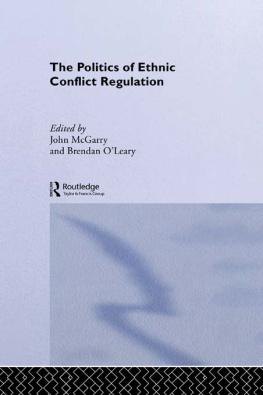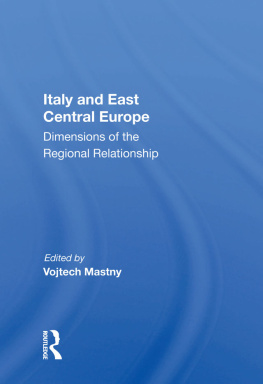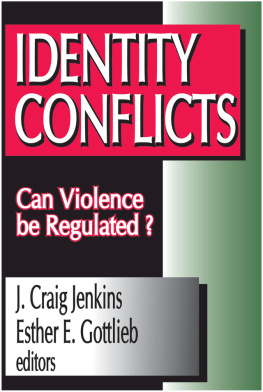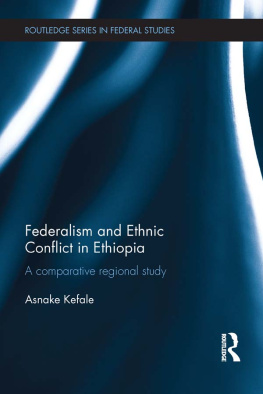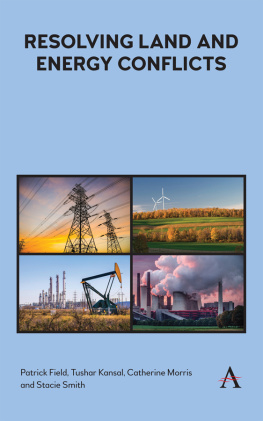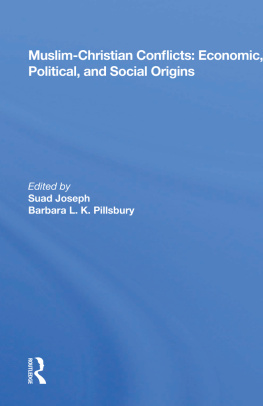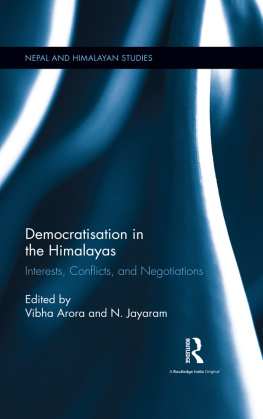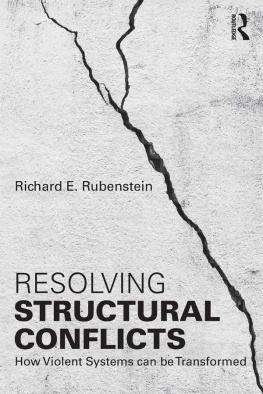First published 1997 by Ashgate Publishing
Reissued 2018 by Routledge
2 Park Square, Milton Park, Abingdon, Oxon, OX14 4RN
711 Third Avenue, New York, NY 10017, USA
Routledge is an imprint of the Taylor & Francis Group, an informa business
Copyright Andreas Klinke, Ortwin Renn and Jean-Paul Lehners 1997
All rights reserved. No part of this book may be reprinted or reproduced or utilised in any form or by any electronic, mechanical, or other means, now known or hereafter invented, including photocopying and recording, or in any information storage or retrieval system, without permission in writing from the publishers.
Notice:
Product or corporate names may be trademarks or registered trademarks, and are used only for identification and explanation without intent to infringe.
Publishers Note
The publisher has gone to great lengths to ensure the quality of this reprint but points out that some imperfections in the original copies may be apparent.
Disclaimer
The publisher has made every effort to trace copyright holders and welcomes correspondence from those they have been unable to contact.
A Library of Congress record exists under LC control number: 98006524
ISBN 13: 978-1-138-62593-8 (hbk)
ISBN 13: 978-1-138-93552-5 (pbk)
ISBN 13: 978-0-429-45942-9 (ebk)
Editors
Andreas Klinke
M.A., Political Scientist and Sociologist at the Center of Technology Assessment in Baden-Wuerttemberg, Stuttgart (Germany). Associate Researcher at the German Scientific Advisory Council on Global Change.
Ortwin Renn
Dr., Professor of Environmental Sociology at the University of Stuttgart. Member of the board of directors at the Center of Technology Assessment in Baden-Wuerttemberg, Stuttgart (Germany). Member of the German Scientific Advisory Council on Global Change.
Jean-Paul Lehners
Dr., Professor of History at the Centre Universitaire de Luxembourg. He is working on the subjects: historical demography and the history of the family, interdisciplinary studies, and world-systems analysis.
Contributors
Silvo Devetak
Dr., Professor of International Law at the University of Maribor (Slovenia).
Carmen Dumitriu-Seuleanu
Director of the European Center for Studies on Ethnic Issues and Social Communication (ECSEISC) in Bucharest (Romania).
Mirijana Morokvasic
Dr., Senior Researcher at the Centre National de la Recherche Scientifique in Nanterre (France).
Albert F. Reiterer
Dr., Lecturer at the University of Vienna (Austria), department of Sociology and Ethnic Studies and freelance social scientist.
Drago Roksandic
Dr., Lecturer at the University of Zagreb (Croatia), department of History.
Ursel Schlichting
M.A., Senior Researcher at the University of Hamburg (Germany), department for Peace Research and Security Politics (IFSH).
Nadia Skenderovic Cuk
Dr., Senior Researcher at the Open University in Subotica (Serbia), European Civic Center for Conflict Resolution.
Zenovia A. Sochor
Dr., Associate Professor at the Clark University in Worcester (USA), department of Government.
Kurt R. Spillmann
Prof. Dr., Director of the Center for Security Studies and Conflict Research at the Swiss Federal Institute.
Towards a Civil Society. Prerequisites of Peaceful Cooperation
During the time of heavy fighting in the former republics of Yugoslavia, the City of Luxembourg became a lively place of discussion, debate, and discourse among representatives of those groups whose leaders were obsessed with the idea of ethnic cleansing and violent struggles over land and political power. Over a two-day period twelve analysts and observers from troubled Eastern and Central European Countries as well as from Western Europe and the United States came together to address one of the most pressing issues in contemporary politics: How can ethnic and political cooperation be accomplished in ethnically and politically heterogeneous countries after the collapse of the communist regimes which left a dangerous void for nationalist and even chauvinist movements? In other words, what are the personal and institutional prerequisites for achieving a civil society capable of resolving conflicts in a peaceful and constructive manner? All the invited scholars from academia, the arts, international research institutes, and various international agencies agreed on one fundamental principle: For policies to be effective and legitimate, we need to empower people on the local and regional level to build traditions and institutional means for resolving conflicts and coping with ethnic, social, and political tensions. There is no technocratic solution nor a centralized top-down approach that would be able to provide long-lasting and stable conditions for peaceful cooperation. For a period of transition, however, international control and centralized efforts to keep order were seen as an inevitable, but in the long term insufficient, step in the difficult process of building a nation based on mutual respect and civil rights.


